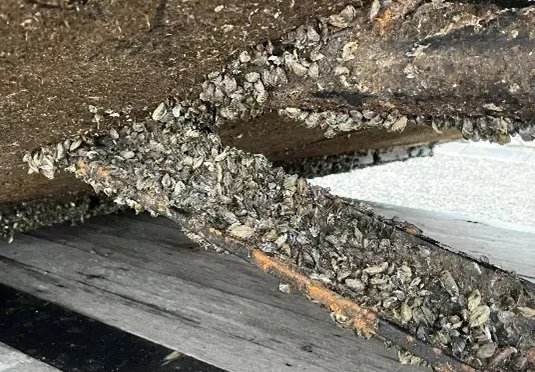From the Washington Department of Fish and Wildlife
Two tugboats infested with quagga and zebra mussels were intercepted at the Spokane watercraft inspection station on January 7th. While one tugboat had only a few mussels attached, WDFW removed 21 gallons of invasive mussels from the other — the largest volume of invasive mussels removed from a single vessel entering Washington in the last 7 years.

Had the Spokane check station not been open, the mussel-fouled watercraft could have ended up in Washington’s waters. Invasive species like quagga and zebra mussels threaten Washington’s economy, environment, human health, critical infrastructure, and recreation.
“Invasive mussel introduction and establishment is an imminent threat to our state,” said Justin Bush, WDFW’s aquatic invasive species division manager. If established, mitigation and management costs to vital infrastructure, like drinking water and hydropower, are estimated to cost hundreds of millions annually. “A single mussel can produce over 1 million eggs per year,” he said adding, “in the last 5 years, we’ve intercepted 127 invasive mussel infested boats. If just one made it to our waters, we would be addressing the consequences of invasive species introduction today.”
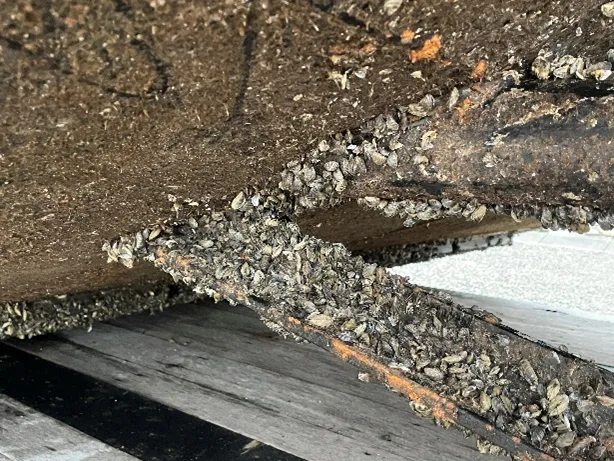
The tugboats were previously anchored in Lake Michigan where quagga and zebra mussels were first detected in the 1980s. Introduced through ship ballast water, the mussels have now spread to more than 30 states. While not currently established in Washington, recent quagga mussel detections in Idaho in 2024 demonstrate how close the threat is to Washington’s waters.
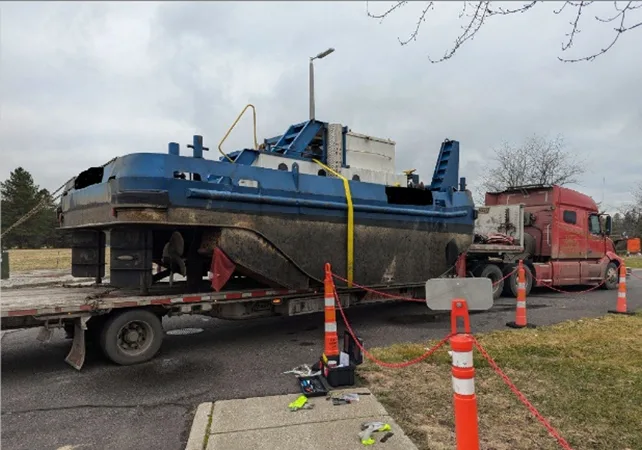
It’s no accident that invasive mussels haven’t established in Washington. Decades of prevention efforts throughout the state and nationally in the U.S. and Canada have helped slow the westward spread. Detections of invasive species on watercraft and other aquatic equipment at watercraft inspections stations are a key part of preventing infestation.
Most western states that operate watercraft inspection stations during the colder months do so with reduced staff and hours, making Spokane one of the few watercraft inspection stations open and fully staffed this time of year. The station is able to operate at normal capacity thanks in part to $3.62 million in additional funding from the Washington state Legislature and federal partners. Additionally, this funding helps WDFW develop preparedness and action plans like the one implemented during the January 7th, interception.
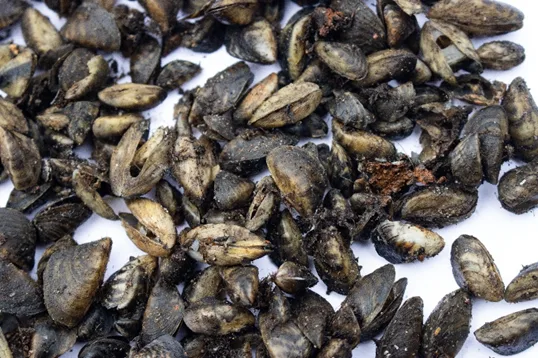
WDFW has requested $7.2 million this legislative session to protect Washington’s waters from quagga and zebra mussels. Refer to our website for more information.
While WDFW works to intercept invasive mussels at Washington’s borders, anyone who recreates on the water can help prevent the spread of invasive species like quagga and zebra mussels. Any time you go out on the water, remember to clean, drain, and dry all your gear and watercraft — both motorized and non-motorized. It’s illegal to transport aquatic invasive species from one waterbody to another in the state and practicing clean, drain, dry every time you leave the water ensures you won’t receive fines up to $5,000 or a year in jail. With your help, Washington can keep invasive mussels out of our waters.
Learn more about aquatic invasive species prevention and threats by visiting the WDFW’s AIS webpage.
